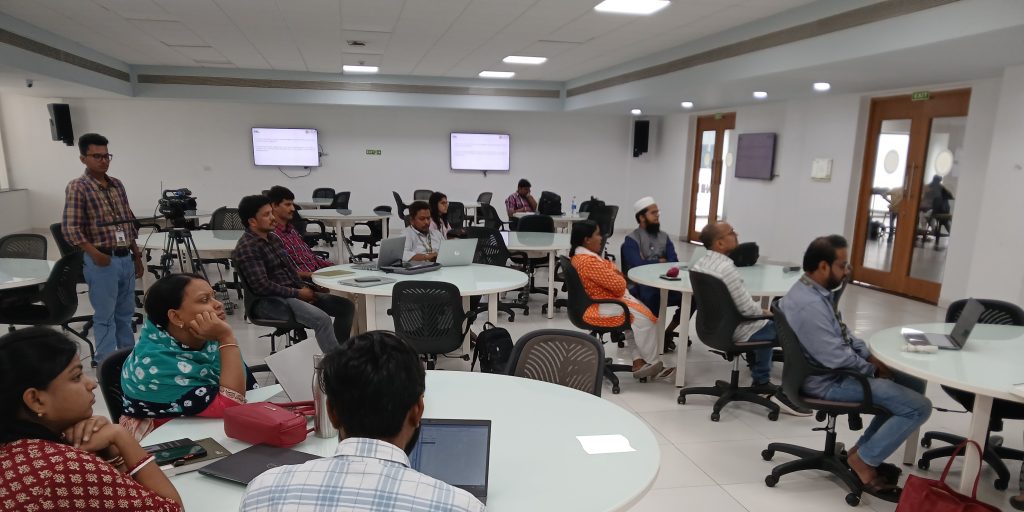
In alignment with the university’s goal to enhance academic excellence, innovation in teaching-learning methods that transgress from non-traditional approaches has taken pivotal importance in academia. To facilitate enhanced and experiential learning experiences for students, the Teaching Learning Centre organised a workshop on “Gamification and Game-based Learning (GBL) in University Education” on November 13, 2024, led by Dr Sunil Chinnadurai, Assistant Professor, Department of Electronics and Communication Engineering. The workshop explored the benefits, challenges, and practical strategies for incorporating Gamification and GBL methods in university-level courses.
The session opened with a discussion on the difference between gamification and game-based learning, two concepts that share similar principles but serve different functions. Gamification, Dr Chinnadurai explained, involves including game-like elements, such as points, badges, and reward systems, in traditional classroom activities. Using these, instructors can transform routine tasks into interactive, motivational experiences for students. Game-based learning, however, takes the concept further by using games as teaching tools. Through this method, students learn by actively engaging in activities that relate to the course matter.
Throughout the workshop, instructors explored how these methods could significantly benefit students. Gamification and GBL have been shown to increase student engagement and actively involve them in learning. This method promotes knowledge skills, boosts creativity, strengthens problem-solving skills, and encourages active participation in the classroom.
The workshop also discussed the practical challenges instructors might face when incorporating GBL and gamification into their courses. Technical issues, student resistance to non-traditional learning methods, and the additional time required for planning were highlighted as common problems. Dr Chinnadurai emphasised the importance of aligning game-based activities with course objectives. Clear rules, along with timely feedback, are essential for creating effective and engaging learning experiences that also meet academic standards.
To provide participants with hands-on experience, the workshop introduced interactive tools such as Kahoot! and Mentimeter, which act as platforms for creating quizzes, polls, and other gamified content. These tools also introduced us to the potential of scenario-based learning.
The workshop highlighted the value of adopting new teaching methodologies in academic pedagogies. As instructors look to enhance their students’ learning experiences, gamification and game-based learning provide promising avenues for making education both rigorous and enjoyable.

